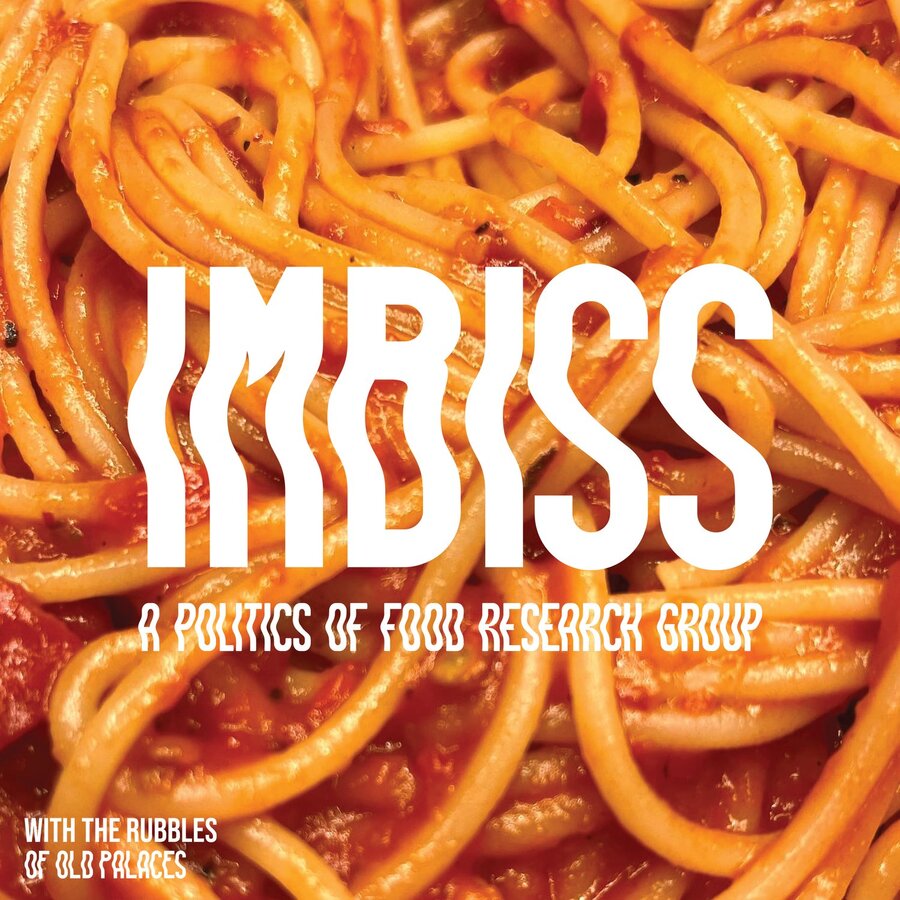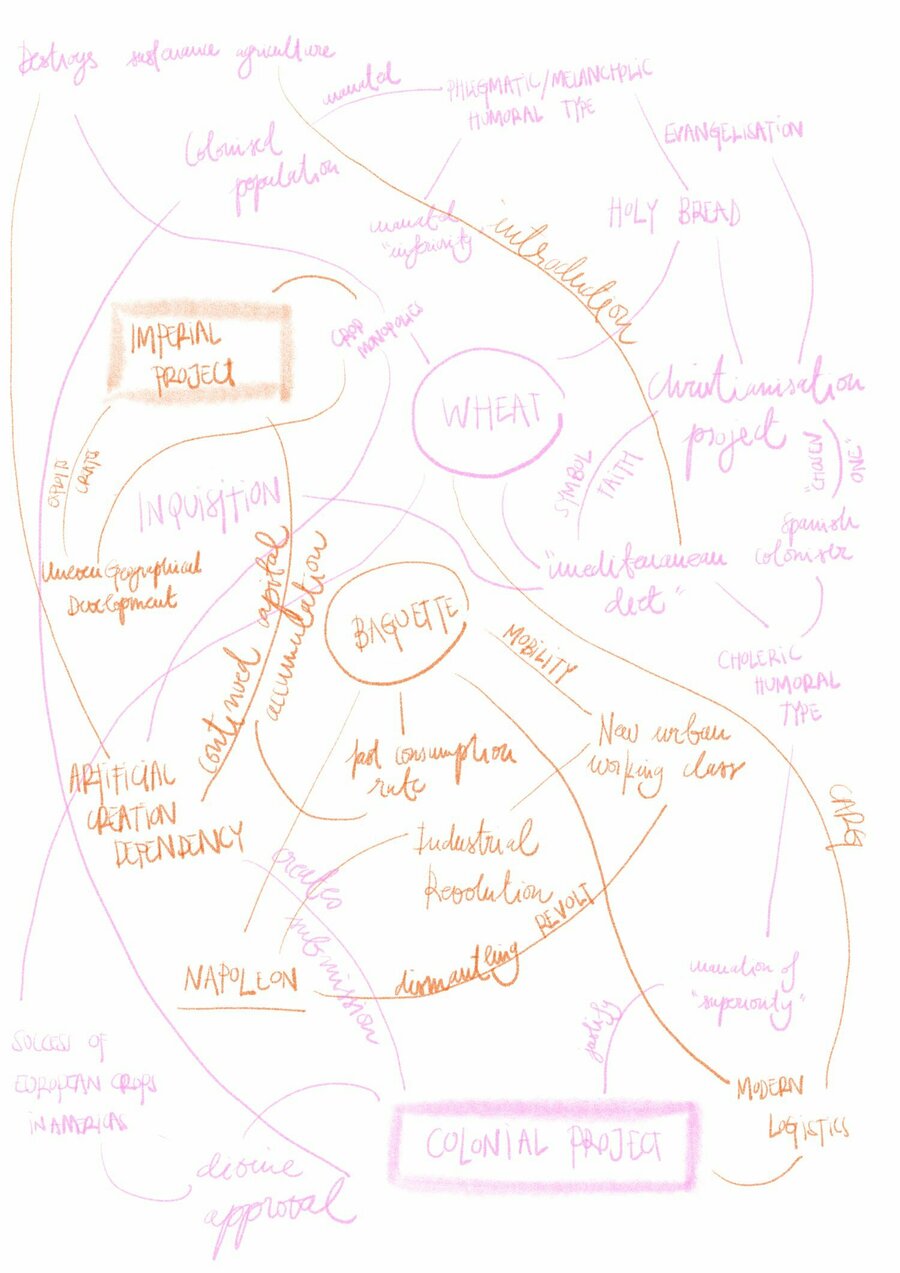This investigation, developed by Hannah O’Flynn within the IMBISS Research Group, opens the question of the relation of the colonial/imperialist project with food production, and the shift of whole ecosystems due to the exploitative capitalistic approach to farming and food trade. This research attempts to map the intersecting capitalist, imperialist and colonial histories of such an everyday food item as the baguette. Why does the baguette appear in so many of the historical French colonial contexts, and why is it so popular? What exactly is the relation between the baguette and the French colonial project? If wheat crops are not indigenous of many of the areas where the baguette is widely consumed, and wheat is impossible to grow in some of these climates, what exactly are the economic forces behind its expansion in many of these markets?
The project begins looking at wheat and wheat bread’s symbolic and ecologic significance in the Spanish colonisation of the Americas, and its role in the construction of race and the forced conversion of the population into Catholicism. The research into wheat then develops into a specific wheat bread, the baguette, which, being introduced by Napoleon during the French Revolution, was to become an emblematic food product of the Industrial Revolution, and the bread of a growing urban working class. The baguette, having become a French cultural emblem, begins to appear across urban centres of many of the old French colonies. This research therefore continues by questioning its dominance in contexts where wheat is not an indigenous crop, therefore looking at wheat’s current role in imperialist economics and its crucial role in the maintenance of uneven geographical development. This, of course, clearly traces the relations between the colonial and imperialist projects, capital, food production, the environmental change caused by the introduction of invasive crops into colonised environments, and the environmental costs of the trade of such products for the sake of continued capital accumulation by the capitalist centres.

